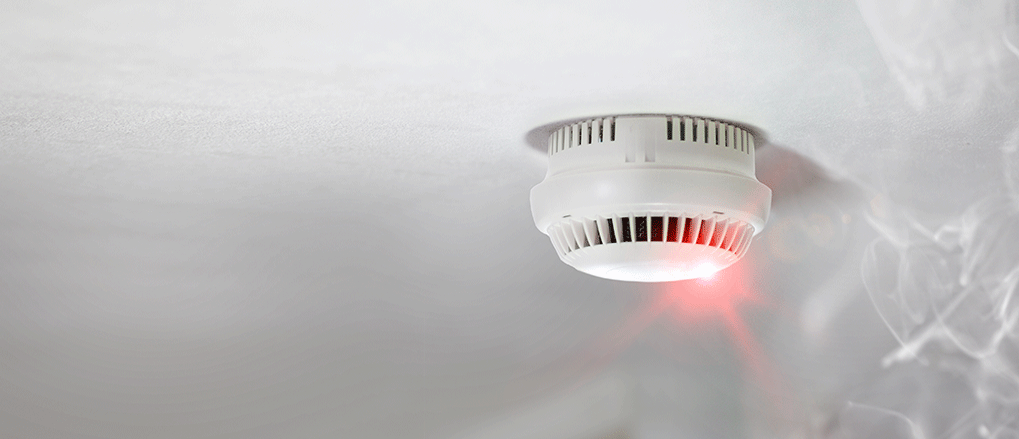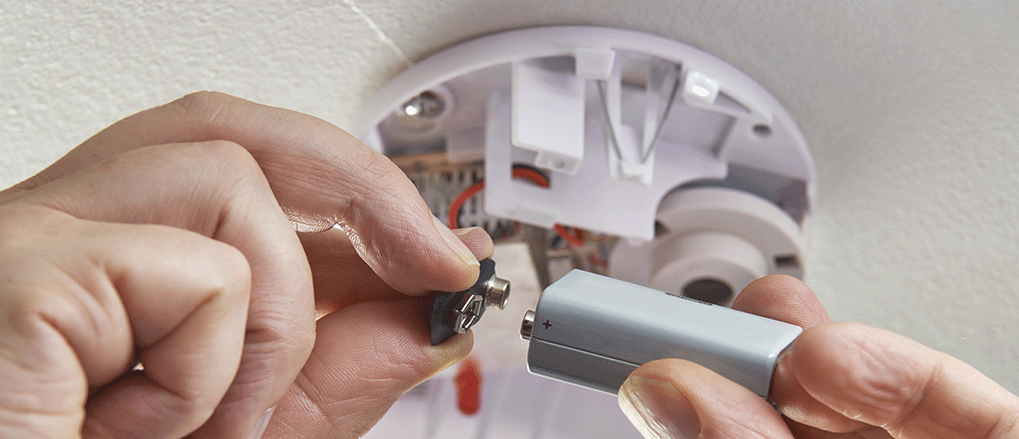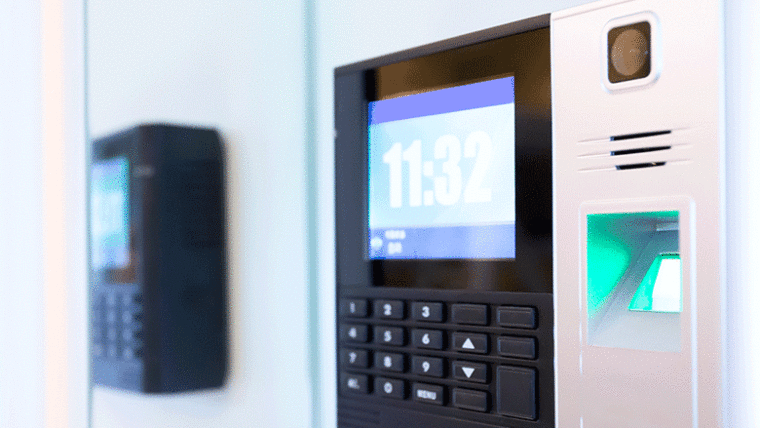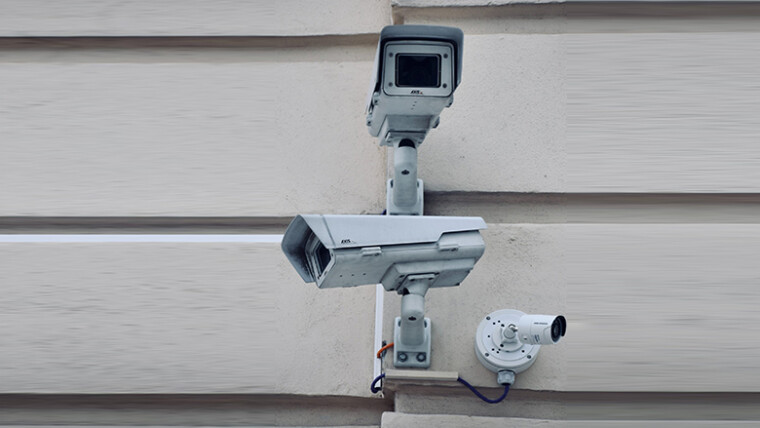Having a good fire alarm system in Miami is crucial. Not only is it hot but the city is busy so whether you live in a suburb or you are a business owner in Brickell, you need to have a quality fire alarm system. Not everyone knows the fire codes and laws that residential and business have to abide by and that’s fine!
That’s where you can learn a little bit here and allow a trusted provider to do the heavy lifting for you. Having a good fire alarm system should keep you safe and those around you.
Let’s talk about what it is, how to install it, and who you should call for help.
What Is a Fire Alarm System?
A fire alarm system will warn anyone inside a building or a house if there is smoke, fire, or carbon monoxide present. They have a few different ways of doing things depending on what type of fire alarm system you have.
You can have either an Ionization fire alarm system, a photoelectric fire alarm system, or a combination of the two. All of these work very well but have subtle differences in how they detect smoke, fire, and carbon monoxide.
They also can be set up through battery operated or wired. In most cases, any wireless system will have backup batteries in case the power goes out so that it can continue to do its job and detect harmful smoke or carbon monoxide when present.
Importance of a Fire Alarm System

The first thing that matters with having fire alarms is safety. By law residents and businesses have to stay up to fire code not only to protect their house and building but also to protect those around them. A good fire alarm system will be able to do the following.
- Detect Early
- Quick Response
- Injury/Illness Prevention
Detection
The first part of any safety element with a fire alarm system is having one that detects smoke early. With this, it can make a massive difference in how quickly the fire spreads and how much damage is done both to property and the safety of people.
Ionization is said to respond 30-60 seconds faster than photoelectric fire alarms when it comes to the flaming stage of a fire. Whereas photoelectric in the past may detect smoke particles easier through the blockage of light.
Quick Response
A good fire alarm system should alter anyone nearby through a loud alarm. It also should alert the security monitoring service and or the fire department quickly. With this, a response team can get help to take care of the fire or the carbon monoxide as quickly as possible, minimizing the damage.
Injury or Illness Prevention
The inhalation of smoke is dangerous and can cause serious health issues for individuals in the presence of it. This is why it is so important to have a fire alarm system that detects smoke, carbon monoxide, and fire because while flames are visible, smoke and carbon monoxide is harder to see.
Certification Required For Fire Alarm Systems

If you are selling your home or own a business you will need a certification from your local fire department to verify that your home is set up with a qualified fire alarm system that performs the above.
Each state has its own rules and regulations in terms of how many fire alarms you need in each room etc. This also changes from the type of building you have whether it’s a single-family unit, duplex, apartment building, or business.
A certified fire alarm technician will be able to install a fire alarm system up to code without issue.
Some of the more common certifications are:
- Certified Fire Alarm Technician Levels I-V by the Electronic Security Association.
- Certified Systems Integrator by the Electronic Security Association.
- Certification in Fire Alarm Systems by National Institute for Certification in Engineering Technologies.
Here is who can service your fire alarm systems according to the National Fire Protection Association.
Specific Brand Trained Employee
Any brand that sells fire alarm systems will also be qualified to install those exact systems. In other words, factory and company employees would be more than capable of installing their product in your home.
If you are installing a Honeywell fire alarm system, a representative from that company can come out and make sure that your specific product is in line with all the fire codes and standards.
Nationally Certified
The certifications we mentioned above are what are considered to be national certified people who are capable of installing your fire alarm system. These certifications train individuals or those who work for businesses to install a fire alarm system in the right spots and set up the correct way.
Some certifications are more advanced than others which make calf or different scenarios. For example, the apartment building is going to have a different list of requirements to keep it safe because there are more people, more units, and more liability compared to a single-family home.
Local or State Authority
Police and your local fire department are more than qualified to install and help you with any issues you may have with a fire alarm system. Firemen and women are in general more knowledgeable than a police officer but those types of employees are also aware of certain requirements and can help you get the job done if needed.
Nationally Recognized Testing Company
Any employee of a company or brand that issues or installs a specific fire alarm system can be qualified through the company for which they work. For instances, Circle Security Systems has qualified and certified train professionals who can integrate your fire alarm system with others.
Fire Alarm System Installation Process

Knowing where to install the fire alarms is the biggest thing. They need to be in multiple areas throughout the home or building. The installation process is more or less tricky depending on what type you have and whether it’s wired or not.
While some people try to install their fire alarm systems, it’s always better if they are done by a professional/certified technician because if they are installed improperly fatal results can occur.
Knowing Where To Put Them
The first step of the installation is assessing the property and knowing where to put the fire alarms and carbon monoxide detectors. The bigger the house is and the more rooms there are then the more detectors you will need to have. Below is a general list of places where they need to place.
- Each Bedroom
- Hallways/Entryways/Common Areas
- Kitchen but 20 feet away from the cooking appliances.
- Attics
- Basements
- Garage
Turn Off Power (Hard-Wired)
Hard-wired fire alarm systems need to have the power shut off. Since the system is wired through the electricity the panel can’t be on during installation for the risk of electrocution and frying the wires through installation.
You can use a pen tester to ensure that the power is turned off before trying to install the fire alarm system.
Mount the Bracket
Your fire detectors will have a mounting bracket and a base that goes into the bracket so that you can change the batteries when needed. You’ll have to unclick the two by twisting them till they come apart.
If you are installing a battery-powered fire detector then all you will need to do is mark the screw holes with a pencil then screw the bracket. This is easier than a wired base because the wired detectors need to go in where the electrical system is set up.
Turn on Power
For battery-operated fire detectors, it will be as simple as opening up the area where the batteries go in and installing them. For wired fire detectors, it’s a little more complicated. This is why it is important to work with a licensed technician because it will involve weaving the wires through the alarm and making sure they are attached property to turn on the power.
Attach to Base
Once this is done you can finally attach the base back to the system and turn it on. If the fire alarm starts to beep and light up this is normal and signals that the system is working. Every single alarm though will respond differently so it’s best to read your manual so that if it is warning you of something wrong you can understand the problem.
Which Type of Fire Alarm System To Choose
Knowing which type of fire alarm to install can be difficult. With both Ionization and Photoelectric being great options it can be difficult to know what is right for you. It also can be difficult to know whether you need wired or wireless.
Let’s talk about the options and how they compare to each other in different situations.
Ionization
Ionization in general has been noted to respond better to flaming fires. They have radioactive materials inside that become set off when certain particles start to seep into the system. This is helpful with invisible particles to the eye.
Photoelectric
Photoelectric responds better to what is called smoldering fires. This means they are good at picking up smoke quickly and can help with early detection. These fire alarms tend to respond quicker to visible smoke particles because of the way the light gets blocked and triggers the alarm.
Combination
Since both types of fire alarm detectors offer crucial information it’s never a bad idea to go with combinations of the two throughout the house or to find one that operates as a dual. That way you can be best protected against both visible and non-visible fires.
Wired
You may not have much of an option when it comes to hard-wired fire alarm systems and not but a wired system will never run you out of battery. What is possible is that if the power goes out, it will technically stop working. Most however have a backup battery to ensure that the system keeps up and running when the electricity is out.
Non-Wired
These types of fire alarm systems in general are easier to install but can get finicky from time to time with batteries. It’s not unheard of that a fire alarm will start beeping for no reason which is why sometimes families prefer a hard-wired system.
Circle Security Solutions Product Showcase
Circle Security Solutions and Alarm.com work together to provide the most up-to-date quality products on the market. Not only do the fire alarm systems work well for both residential and business properties but they allow some of the same features that increase your safety. Alerts to your phone and monitoring are just some of the many benefits you get when you work with a trusted member of our team.
Conclusion
Fire alarm systems are something that a homeowner or a business owner should not have to worry about. This type of alarm system should be handled top to bottom by an experienced company that has all the right qualifications and certifications.
What they should know is that a good alarm system requires early detection, the ability to alert authorities, and safely let those within the premises know to exit. This should be done both by in-person sirens but also incorporating technology today by sending alerts to the phone.
While both Ionization and Photoelectric are great types of fire alarm systems, going with a combination setup will protect you from all types of fires.


